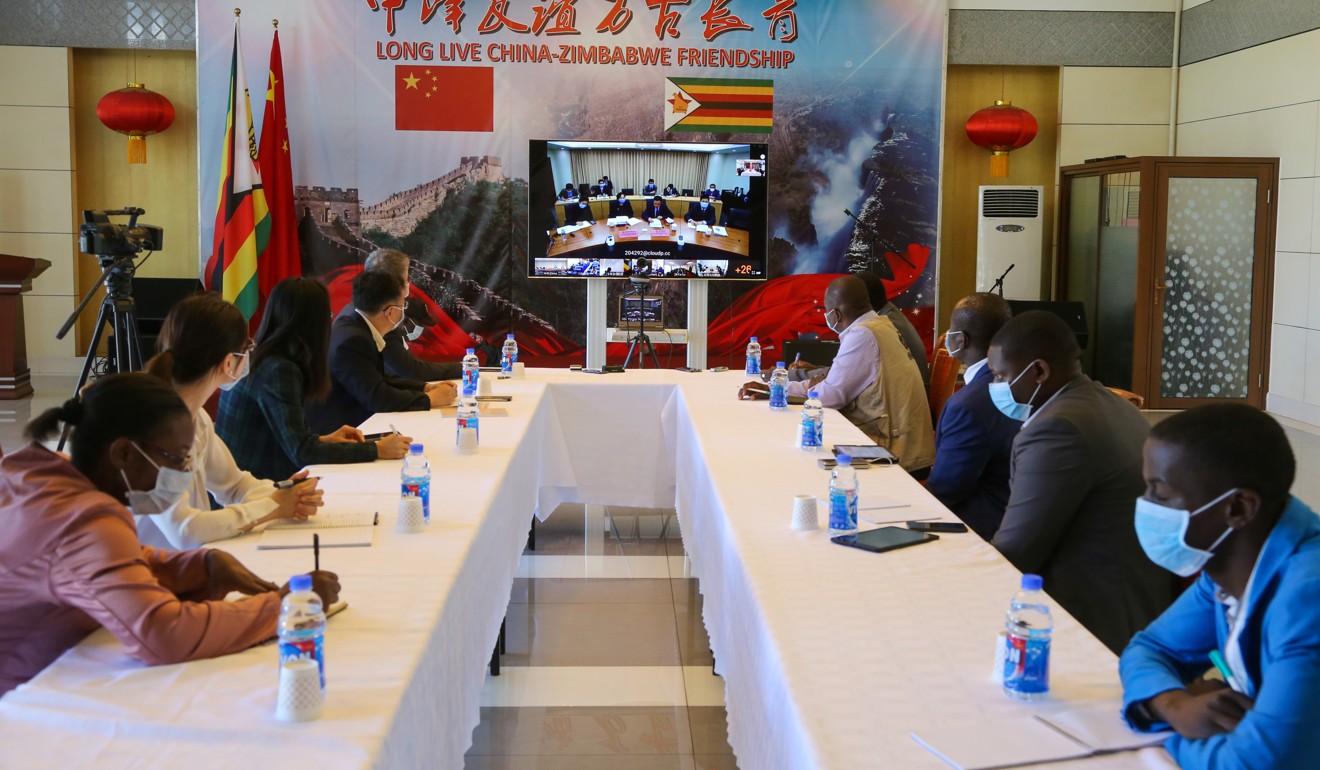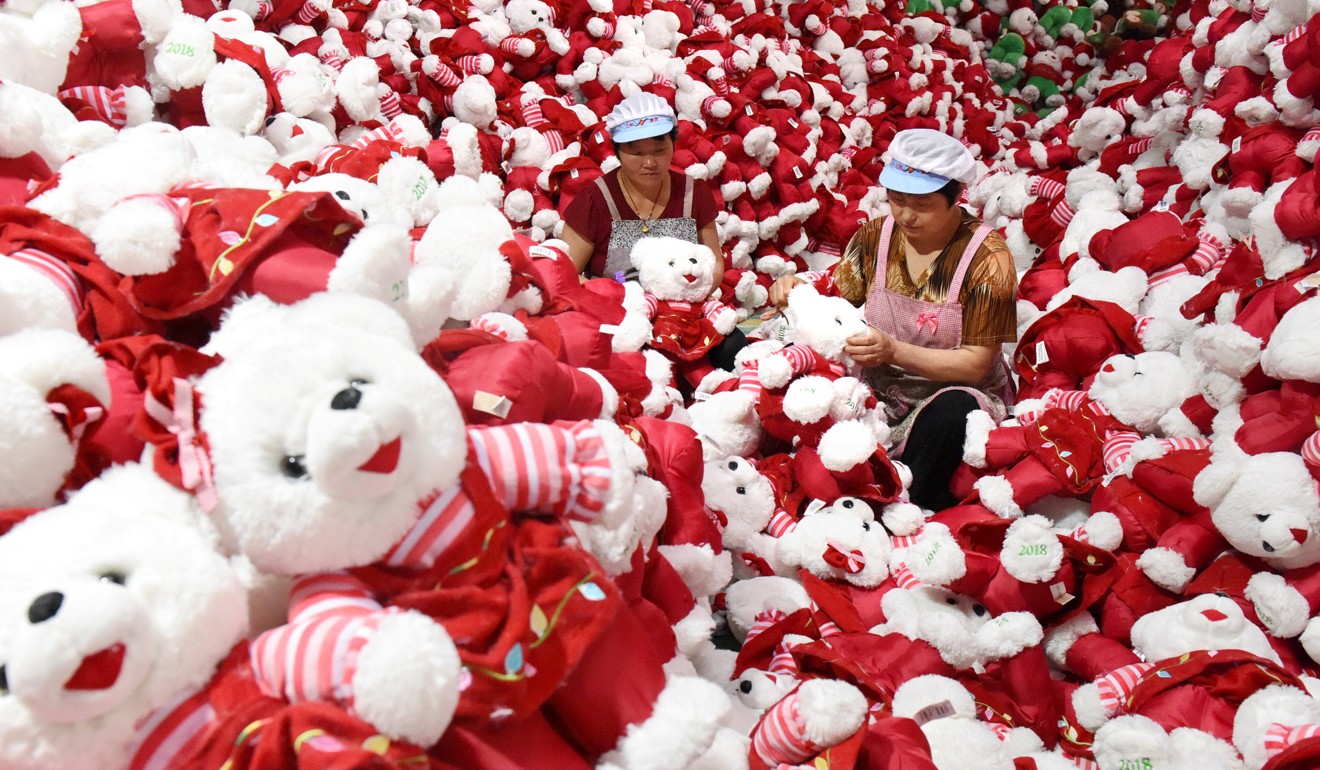
Will China’s support for nations fighting Covid-19 improve its global image?
- Beijing was widely criticised for mishandling the Sars outbreak, so why is it still being condemned for helping nations tackle the coronavirus pandemic?
- One analyst says US officials are attacking China to shift attention away from the pressures they are under at home
At that time, Beijing paid a huge price – in human lives and global standing – to contain the pneumonia-like disease.
Beijing’s mishandling of the Sars (severe acute respiratory syndrome) crisis – including initially covering it up and misleading the public about the spread of a virus that killed hundreds of people around the world between November 2002 and July 2003 – was widely seen as its worst international embarrassment since the bloody crackdown on pro-democracy demonstrators at Tiananmen Square in 1989.
However, despite the criticism, China, which was then the world’s sixth-largest economy, quickly got back on its feet, and was embraced by Western businesses and investors who raced to build factories in the world’s most populous country.
Just days after China’s rare admission of the mistakes it had made in handling Sars – and the firing of the nation’s health minister and mayor of Beijing – Jean-Pierre Raffarin, then French prime minister, visited the Chinese capital and met then Chinese president Hu Jintao and premier Wen Jiabao.

Weeks later, in one of the most high-profile engagements with Western powers, Hu joined the leaders of the Group of Eight – the eight most industrialised powers that Beijing used to view as the world’s “rich men’s club” – for a special meeting in the French town of Evian-les-Bains, where he also held separate meetings with then French president Jacques Chirac and then US President George W. Bush.
During his meeting with Bush, Hu told the US president that the two countries “shared broad interests and a foundation for cooperation” and that Beijing was “willing to work with the US to push forward the constructive and cooperative relations”, according to Chinese state media.
Almost two decades on, and despite China’s best efforts to promote itself as a global leader in tackling the Covid-19 pandemic, that level of closeness seems a long way away.
In the US, suspicion of China has been growing. According to the latest Gallup poll conducted in February, just 33 per cent of Americans had a favourable opinion of China, down from 45 per cent in 2004, 41 per cent in 2003, and lower even than after the Tiananmen Square crackdown.

As the economic interdependence between China and the US has increased over the past decade, so too has the strategic competition between them, spiralling outwards from trade and technology, to the military and even matters of ideology.
That hostility has increased in recent weeks, with both sides playing the racial blame game over the causes of the Covid-19 pandemic and expelling each other’s journalists in a diplomatic spat.
After two months of lockdown that brought its economy to a grinding halt, China appears to have succeeded in stopping the spread of the pathogen, while the epicentre of the pandemic has switched to the US and Europe.
With its growing economic might and expanding footprint around the world, China has pledged to do all it can to help by sending experts and medical supplies to countries, from well-developed Italy and Spain to less-developed Egypt, Iran and Serbia.
Shi Yinhong, a US affairs expert at Renmin University in Beijing, said: “In 2003, the Sars outbreak was mostly limited to China and Southeast Asia, but the tables have turned, with governments in the West, particularly in Europe grappling with the epidemic as China is getting everything under control. Perceptions have changed.”
The panic caused by the disease had also fuelled the blame game between Chinese and US officials. who were keen to shift the focus away from the pressure they were under at home, he said.
Tian Feilong, an associate professor at Beihang University’s Law School in Beijing, said that despite initial efforts to play down the dangers of the coronavirus outbreak, China’s efforts to control it would “heighten the strategic vigilance” of the US.
Earlier this month, China’s defence ministry said it had dispatched ships to warn off the USS Campbell missile destroyer for sailing into disputed waters in the South China Sea without authorisation, after the US Pacific Fleet had earlier accused a Chinese destroyer of directing a laser light at a P-8A Poseidon surveillance plane flying over international waters west of Guam in February.
“Suspicions of China would have deepened even without the coronavirus as the strategic containment policy was established before the outbreak,” Tian said. “But the containment efforts have been accelerated because of the outbreak.”
How China’s coronavirus response may shape the future of its Belt and Road Initiative
Shi said that Beijing still had its biggest challenge ahead of it, after sacrificing so much economic activity to contain the contagion, and was struggling to restart its economy, which suffered a record contraction in February.
“The pressure on the Chinese economy was huge even before the coronavirus outbreak because of a potential economic slowdown,” he said.
“If China succeeds in containing the outbreak but fails to resume its economy in time, it may have won the battle but lost the war.”
Tian said: “China should take the responsibility in global governance by offering help to other countries to contain the outbreak.
“This would be in stark contrast to the US and its allies, which are grappling with the outbreak by imposing travel bans, and that sense of responsibility would be felt and welcomed by Europe.”
Purchase the China AI Report 2020 brought to you by SCMP Research and enjoy a 20% discount (original price US$400). This 60-page all new intelligence report gives you first-hand insights and analysis into the latest industry developments and intelligence about China AI. Get exclusive access to our webinars for continuous learning, and interact with China AI executives in live Q&A. Offer valid until 31 March 2020.

